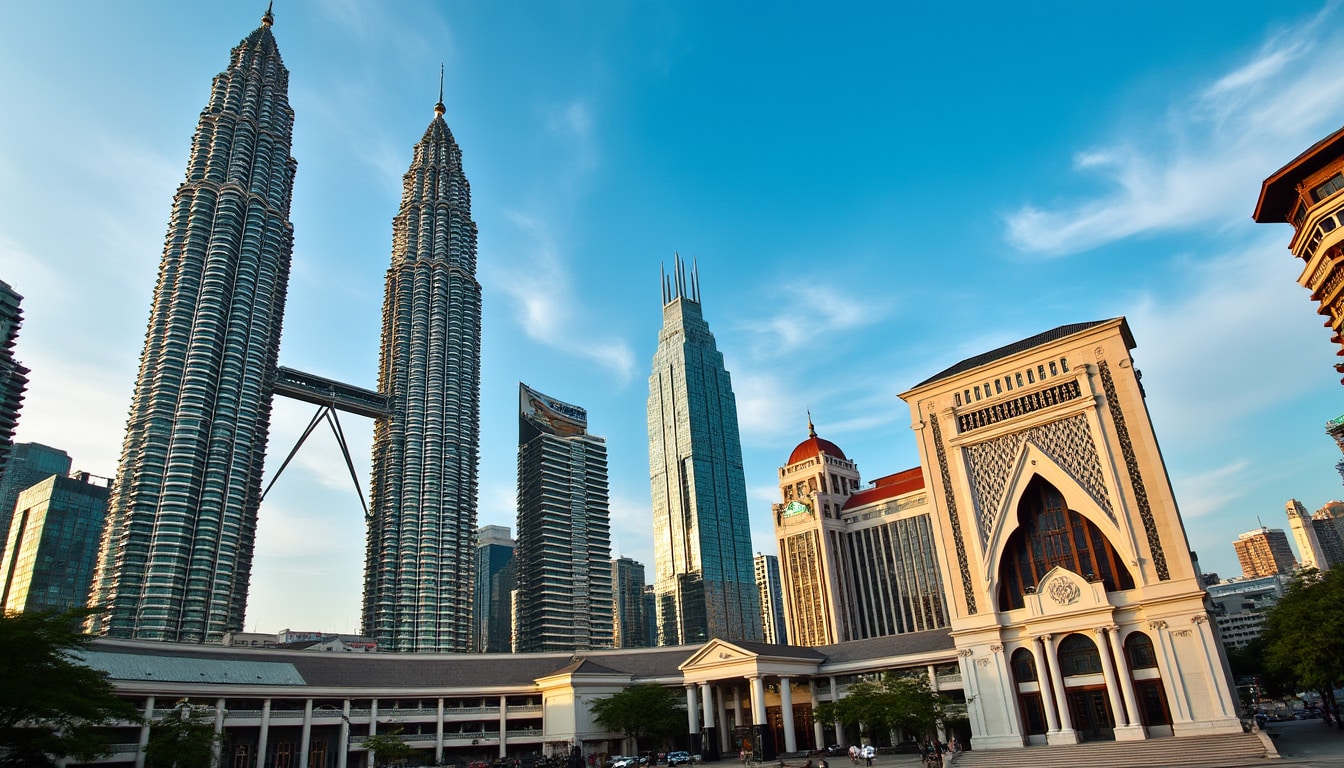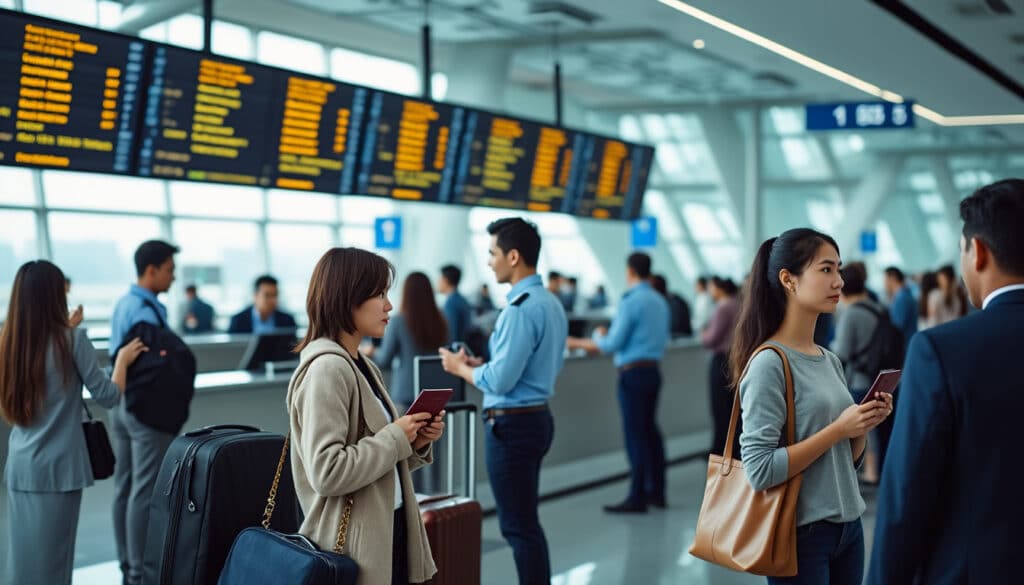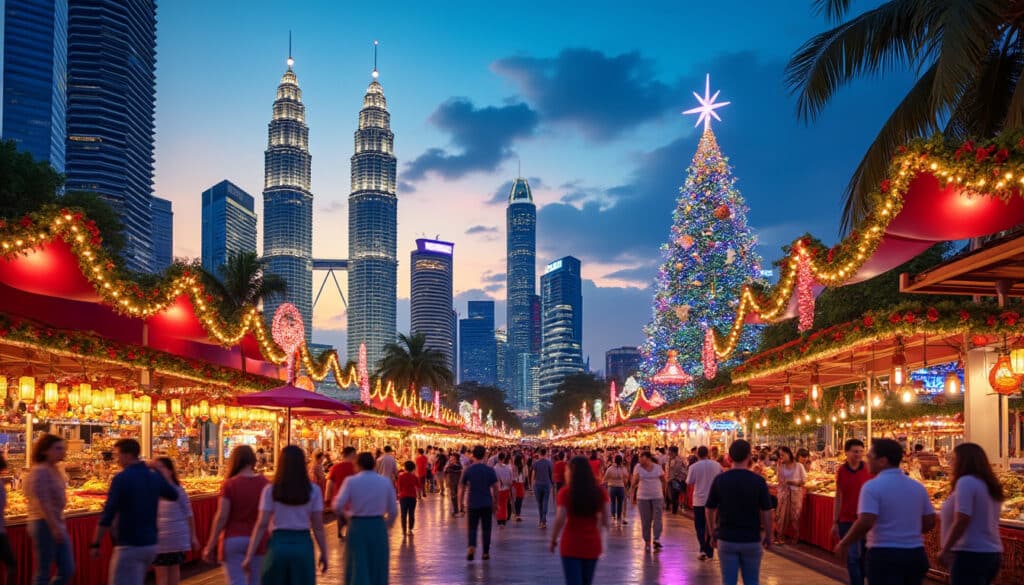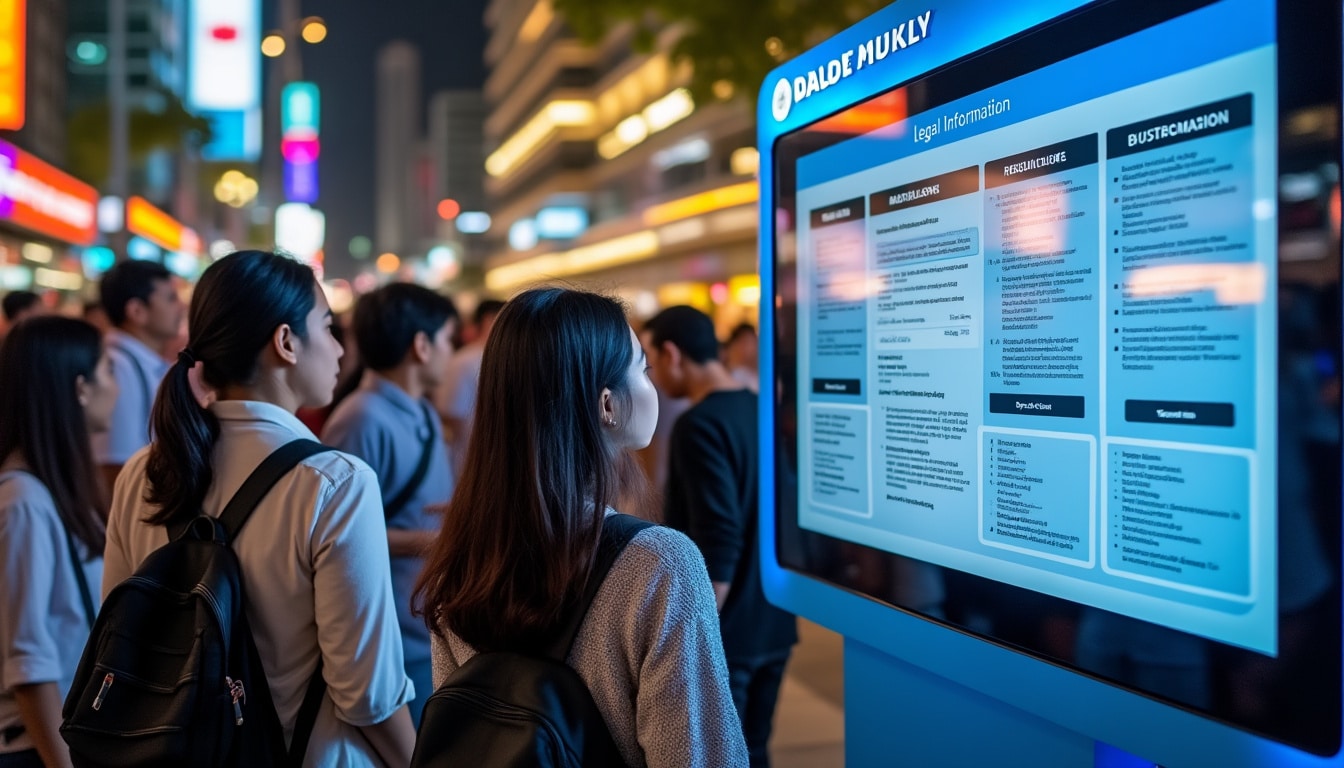Legal Information and Rules in Kuala Lumpur serve as a pivotal guide for both visitors and residents within the bustling metropolis. As Malaysia’s capital, Kuala Lumpur is not only known for its iconic skyline and vibrant cultural scene, but also for its dynamic economic environment and stringent legal frameworks. Understanding the city’s legal landscape is essential for anyone looking to navigate its complex systems, be it for business, investment, or personal endeavors. This guide delves into the various legal aspects of life in Kuala Lumpur, aiming to provide clarity and practical insights.
Understanding the Economic and Legal Landscape of Kuala Lumpur
Kuala Lumpur, as the thriving heart of Malaysia, plays a substantial role in shaping the nation’s economic and legal environment. The city’s contribution to Malaysia’s GDP, estimated at MYR 400 billion, underscores its status as a financial hub. Its advanced infrastructure and skilled workforce attract global investors, especially in sectors like finance, technology, and services.
The finance and banking sector in Kuala Lumpur is robust, housing major local and international banks. This sector is buttressed by a well-developed financial infrastructure that facilitates significant Foreign Direct Investment (FDI). Meanwhile, the technology sector is on an upward trajectory, with Cyberjaya, Kuala Lumpur’s tech hub, fostering a range of fintech and software development startups. Government initiatives such as the Cradle Fund and Malaysian Digital Economy Corporation (MDEC) provide substantial support to these nascent businesses, perpetuating innovation and growth.

Manufacturing also remains pivotal, with strengths in electronics, automotive, and machinery production. Strategic location and developed infrastructure ensure that Kuala Lumpur stands as a major manufacturing hub, supported by an efficient transport network.
In the legal domain, establishing a business in Kuala Lumpur involves registration with the Companies Commission of Malaysia (SSM). This includes choosing the appropriate structure, be it a sole proprietorship, partnership, or private limited company. Post-registration, businesses must adhere to compliance requirements as specified by Malaysian Financial Reporting Standards (MFRS) and submit necessary filings to the Inland Revenue Board (IRB).
The taxation system in Malaysia is comprehensive, with key taxes being:
- 📈Corporate Income Tax: Standard rate is 24%, or 17% for small businesses with taxable income below MYR 500,000.
- 🛒Goods and Services Tax (GST): Standard rate at 6%.
- 🔍Withholding Tax: Ranges from 10% to 15% depending on income type and recipient.
- 🏛️Local Business Taxes: Varies by local government, typically between 1% and 3% of gross receipts.
- 🏠Capital Gains Tax (CGT): Absent for share sales, but applicable to property sales.
The diverse economic activities paired with robust legal structures make Kuala Lumpur an attractive destination for entrepreneurs and investors looking to expand their horizons in Southeast Asia.
The Legal Environment for Businesses in Kuala Lumpur
The burgeoning business scene in Kuala Lumpur is complemented by a conducive legal environment, pivotal for sustaining growth and compliance. An understanding of Malaysia’s company registration process is essential for budding entrepreneurs and foreign investors alike. Registration begins with the Companies Commission of Malaysia (SSM), where entities must determine the most suitable business structure, be it a sole proprietorship, partnership, or a private limited company (Sdn Bhd).
Subsequent compliance involves procuring a Taxpayer Identification Number (TIN) from the Inland Revenue Board (IRB) and, if applicable, registration for Goods and Services Tax (GST). Various licenses and permits might be obligatory depending on the specific business activities, ensuring alignment with local authorities’ standards.
After setting the business framework, compliance with accounting standards becomes imperative. Annual returns must adhere to the Malaysian Financial Reporting Standards (MFRS), with income tax returns filed annually to the IRB. Furthermore, the adherence to regulations pertaining to employee benefits and workplace standards is non-negotiable.
The taxation framework in Kuala Lumpur is marked by multiple critical tax components:
| Tax Type | Rate | Applicability |
|---|---|---|
| 🌐 Corporate Income Tax | 24% | Applies to corporate taxable income |
| 💼 Small Business Tax | 17% | For businesses with < MYR 500,000 taxable income |
| 🛒 GST | 6% | Standard rate for goods and services |
The Malaysian government’s active role in promoting business growth through the Malaysia Digital Economy Blueprint and tax incentives for technology and manufacturing further solidifies the city’s appeal for business ventures.
Government Support and Regulations in Kuala Lumpur
Kuala Lumpur’s vibrant business ecosystem is further invigorated by the Malaysian government’s proactive policies to support enterprise growth. Initiatives such as the Malaysia Digital Economy Blueprint aim to transform the nation into a digital economy by 2025. These directives focus on nurturing technology, manufacturing, and the renewable energy sectors through a combination of tax incentives and grants.
Through agencies like the Malaysia Investment Development Authority (MIDA) and Malaysian Investment Agency (MIA), businesses receive substantial support, streamlining processes for foreign and local investments in high-priority sectors. Furthermore, the focus on compliance is emphasized through stringent regulations governing various business aspects.
Intellectual property rights are strongly protected under Malaysian law, with businesses encouraged to register trademarks, patents, and copyrights through the Intellectual Property Corporation of Malaysia (MyIPO). Labor laws, crucial for maintaining fair workplace practices, cover aspects ranging from employment contracts to minimum wages, and employee rights under the Employment Act 1955.
Environmental regulations in Kuala Lumpur require businesses to comply with guidelines set by the Department of Environment (DOE). This includes regulations on waste management, pollution control, and sustainability efforts.
- 📄Intellectual Property: Registration with MyIPO ensures protection.
- 👔Labor Laws: Governed by the Employment Act 1955.
- 🌱Environmental Compliance: Align with DOE guidelines.
In sum, understanding these regulatory measures not only safeguards businesses from legal pitfalls but also harnesses opportunities through government-backed incentives, underscoring the importance of legal literacy in Kuala Lumpur.
Kuala Lumpur’s Urbanization and Workforce Dynamics
Kuala Lumpur consistently attracts individuals and businesses from around the globe, thanks to its strategic location and comprehensive infrastructure. The region houses nearly 2 million residents supported by a highly educated workforce, largely due to the presence of acclaimed institutions such as the University of Malaya and Monash University Malaysia. This steady talent pool fuels innovation across critical sectors like real estate, retail, and services.
The city’s strategic location within Southeast Asia facilitates regional and global trade, significantly supported by key infrastructures:
| Infrastructure | Significance |
|---|---|
| ✈️ Kuala Lumpur International Airport (KLIA) | Major hub for international trade and travel |
| ⚓ Port Klang | Strategic logistics hub linking global trade routes |
| 🚆 Public Transport Network | Integrated light rail, monorails, and buses |
These infrastructures not only bolster Kuala Lumpur’s economic fabric but also enhance its appeal as an investment destination. The continuous investment in infrastructure projects, like the MRT3 Circle Line expected to enhance city connectivity, highlights future prospects for economic expansion and urban development.
The city’s growing population and urbanization rate present vast opportunities, particularly in real estate and service sectors, making Kuala Lumpur an attractive hub for prospective investors and entrepreneurs.
Insights into Property Investment in Kuala Lumpur
Property investment in Kuala Lumpur presents lucrative opportunities driven by the city’s consistent economic growth and urban development. The thriving rental market, especially in high-demand areas such as Kuala Lumpur City Centre (KLCC) and Bukit Bintang, attracts both residential and commercial investors.
Despite there being regulations on foreign property purchase, with minimum purchase prices and permissible property types, Kuala Lumpur remains a favorable investment locale. High-rise condominiums and commercial properties dominate foreign interest due to their profitability and strategic positioning.
Notable success stories in Kuala Lumpur such as Grab, Fave, and iPrice Group exemplify the city’s potential for innovation and economic success. These companies have leveraged Kuala Lumpur’s dynamic environment and supportive legal framework to rise as prominent players in their respective fields.
Planning investments in Kuala Lumpur can yield fruitful returns, particularly in emerging sectors like the digital economy and sustainable infrastructure. Entrepreneurs willing to delve into the city’s vibrant market will find ample opportunities supported by solid infrastructure and an efficient legal system.
Prospective investors must remain informed about local regulations and market dynamics, leveraging these insights for strategic investment decisions.
FAQ: Navigating Legalities in Kuala Lumpur
- ❓What are the key sectors driving Kuala Lumpur’s economy?
Finance, technology, manufacturing, and services are the key sectors powering Kuala Lumpur’s economic landscape.
- ❓How can a foreigner register a business in Kuala Lumpur?
Foreigners need to register their business with the Companies Commission of Malaysia (SSM) and obtain necessary permits and licenses per business activity, complying with local laws.
- ❓What legal support is available for new businesses in Kuala Lumpur?
New businesses can seek assistance from firms offering KL Legal Services and Kuala Lumpur Court Services, ensuring compliance with local regulations.

Calling and communication rules in Kuala Lumpur
Welcome to the bustling metropolis of Kuala Lumpur, where cultural diversity and modernity seamlessly blend to create a unique urban landscape. Understanding the local nuances in calling and communication is essential for navigating this vibrant city. From decoding the intricacies…

Criminal status and entry to Kuala Lumpur
The vibrant city of Kuala Lumpur stands as Malaysia’s bustling capital, inviting travelers to explore its skyscrapers, diverse cultures, and mouthwatering cuisine. However, for those with a criminal record, understanding the entry requirements and navigating the complexities can be daunting.…

Drinking and age restrictions in Kuala Lumpur
Exploring the bustling metropolis of Kuala Lumpur offers a mix of vibrant nightlife, panoramic cityscapes, and a rich cultural tapestry. However, for those planning to enjoy the city’s nightlife, understanding the drinking and age restrictions becomes essential. The landscape of…

Holiday openings in Kuala Lumpur
Discover the holiday seasons in Kuala Lumpur and enjoy a unique tapestry of cultural festivities and traditions. This bustling metropolis is not only the capital of Malaysia, with soaring skyscrapers and a vibrant nightlife, but it is also a melting…

How to move to Kuala Lumpur legally
Moving to Kuala Lumpur: A Comprehensive Guide to Legal Migration As vibrant and bustling as it gets, Kuala Lumpur, Malaysia’s capital, draws expatriates from around the world with its rich cultural tapestry and booming economy. The tropical city offers an…

Smoking, drugs, and red light laws in Kuala Lumpur
Welcome to Kuala Lumpur, a city bustling with cultural diversity, towering skyscrapers, and rich history. As mesmerizing as this metropolis is, understanding its laws concerning smoking, drugs, and the vibrant red-light districts is crucial for any visitor or resident aiming…

Social and discrimination issues in Kuala Lumpur
In recent years, Kuala Lumpur has become a thriving metropolis teeming with diverse cultures, languages, and traditions. Despite its advancements, the city faces persistent social and discrimination issues that require immediate attention. This article delves into the multifaceted challenges that…

